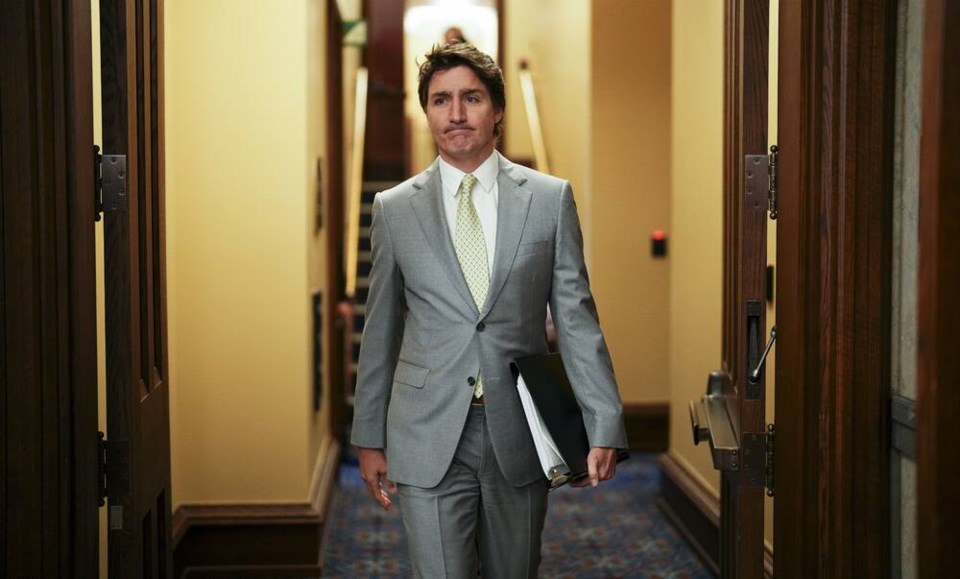A commentary by the chief executive officer of Habitat for Humanity Victoria.
I was recently asked what I thought about Prime Minister Justin Trudeau’s recent comment that “housing needs to retain its value … it’s a huge part of people’s potential for retirement and future nest egg.”
This factually correct response is refreshing, but also puzzling given that his government’s policies actively disregard this reality.
While championing “intergenerational fairness” in housing, government at all levels ignore the need to create affordable homes to purchase. You don’t hear many younger adults these days saying that their dream is to one day finish school, get a job, and rent an apartment. Rather their aspirations are typically to live the “dream” of owning their own home like previous generations.
Both this desire to want to purchase a home and Trudeau’s comments speak to the power of homeownership.
For most people, homeownership offers many more benefits than renting. It’s also better public policy. Multiple studies have established that homeowners have much better socioeconomic outcomes, have higher life satisfaction, are healthier, their children do better in schools, have much easier retirements, intergenerational benefits accrue, and are more likely to vote and participate in community.
The facts support Trudeau’s specific points; Canadian homeowners are much better off financially than renters. How much better off? According to a 2019 report by Statistics Canada, homeowners reported a higher median net worth ($685,400) vs. renters ($24,000) across all age groups.
Trudeau is right. Canadians are building nest eggs through homeownership. The data is clear, and even more stark that the financial advantage from homeownership is largest for those nearing retirement age (55-64) where median net worth for homeowners was $952,100 compared with just $40,000 for renters.
Moreover, these benefits are a global realty and are not specific to certain incomes, demographic considerations, or region.
Homeownership is one of the greatest tools Canada has to reduce inequality. For Canadians with incomes of less than $32,914, 53.2% of their net worth is tied to owing their principal residence. For wealthier Canadians, this percentage falls to 41.3%.
Although these truths are self-evident, and Trudeau has acknowledged them, why aren’t they steering government policy?
Why, if we know homeownership is objectively beneficial to Canadians, are the federal, provincial and many local governments exclusively focused on creating and funding only rental housing?
Why are they only funding the creation of purpose-built rentals?
Need evidence? Federal GST waivers for new construction are available on purpose-built rentals but not on affordable homes to buy.
CMHC construction funding? Only available for purpose-built rentals. Provincial funding (through B.C. Housing), only available on purpose-built rental. Municipal waiver of development charges and community amenity charges? Only available for purpose-built rental.
Homeownership policies like the First Time Savings Account, Home Buyer’s Plan, extending mortgage amortization, or waiver of property transfer tax for first-time buyers in B.C. isn’t going to move the needles on increasing the supply of affordable homes.
Do you really benefit from withdrawing money from your RRSP if homes are outrageously expensive? Can you even save any money with today’s cost of living and rent levels?
Instead of taking an “all-in” approach, the exclusion of affordable homes to buy is a huge policy mistake. It illustrates, in my opinion, the inexperience of political leaders in addressing the housing crisis as they don’t understand we have a housing system.
To be clear, funding the creation of more affordable purpose-built rental isn’t the mistake, we definitely need more housing of all types. Only by radically increasing the supply of all housing will it become more affordable.
The mistake is not understanding that Canada’s housing system is made of many different components in order to properly function. By ignoring all of those components they are perpetuating it’s continued failure.
We have already seen this happen through the bottlenecking of the rental market. With the supply of new housing continuing to slow, despite some new completions, and rents continue to increase.
Many renters can’t save for a home downpayment because the cost of rent is so high. Seniors and retirees won’t downsize as the cost to move out of their mortgage-free, single family home nest egg is too high.
The system can no longer filter people through the housing continuum. It remains and will remain broken.
Is it fair that we will have a whole generation of renters entering retirement and in the future without the security of a real estate “nest-egg”?
And how will governments afford to house and care for them if they don’t have the financial capacity to do it for themselves?
So here’s my advice to Trudeau, David Eby and various local government leaders: Take the time to better understand and acknowledge that we have a housing system and that your housing policies ignore the needs of Canadians when you exclusively fund purpose-built rental housing but not homes that can be purchased affordably.
Accept that from a public policy perspective, encouraging homeownership is, by far, the most superior, equitable, and “intergenerationally fair” approach to take in tackling the housing crisis.
And by the way, I’d be happy to tell you how to make housing more affordable.
>>> To comment on this article, write a letter to the editor: [email protected]



